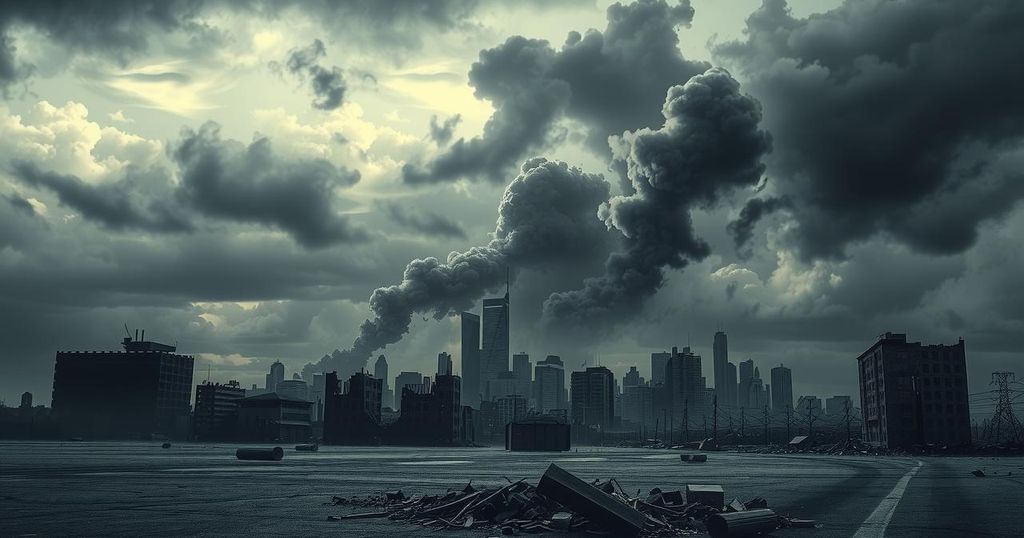Tragic Conflict Leads to Nearly 3,000 Deaths in Goma, DR Congo

Approximately 3,000 fatalities have been reported in Goma, DR Congo, amidst conflict with rebel forces. The Alliance Fleuve Congo announced a ceasefire, dismissed by the Congolese government as disingenuous amidst ongoing fighting. The UN highlights a growing humanitarian crisis with thousands displaced and concerns over territorial control by rebel groups, particularly M23, which continues to advance.
In a tragic escalation of conflict, nearly 3,000 individuals have been reported dead in Goma, a city in the eastern Democratic Republic of Congo (DR Congo), following its seizure by rebel forces. The United Nations indicated that approximately 2,000 bodies were retrieved from the streets, with an additional 900 still in local morgues. Vivian van de Perre, the deputy head of the UN mission, warned that the death toll could rise as many bodies remain undiscovered in the area.
The rebel coalition, Alliance Fleuve Congo (AFC), which includes the M23 armed group, declared a ceasefire in response to the humanitarian crisis instigated by the Congolese government. However, the Congolese administration dismissed this ceasefire as a “false communication,” with reports of continued intense fighting particularly in South Kivu province. The conflict has deep-seated roots in ethnic tensions and competition over valuable land and minerals.
Accusations against neighboring Rwanda for supporting the M23 group persist, with DR Congo and U.S. officials expressing concerns regarding Rwanda’s backing of the ethnic Tutsi rebels. Although the Rwandan government denies these claims, President Paul Kagame mentioned that his country maintains troops in eastern Congo for security purposes, reflecting the complexities of regional dynamics.
The renewed M23 rebellion, which began in 2022, has seen the group capturing territories rich in valuable minerals such as coltan, essential for technology production. Despite an initial announcement of a ceasefire, significant fighting has been reported near pivotal locations in South Kivu, indicating ongoing instability as tensions rise with the M23 rebel group advancing toward key cities.
The UN remains concerned about the humanitarian crisis, with nearly 2,000 displaced civilians seeking shelter at peacekeeping bases. Response efforts are complicated as the rebels consolidate control over Goma, further exacerbating the volatile situation. Acknowledgment of the rebel presence reflects the complex reality that the Congolese government has been unable to fully regain control in affected areas.
In summary, the rebellion in DR Congo has prompted immense human suffering and destabilization, leading the UN to express grave concern about the situation. The ongoing violence presents a considerable humanitarian crisis, underscored by fears of further escalation and the challenges facing displaced populations in Goma and surrounding regions.
The conflict in the eastern Democratic Republic of Congo is rooted in longstanding ethnic tensions and competition over land and mineral resources. The region has been plagued by violence for decades, resulting in significant humanitarian crises. The M23 armed group, mainly composed of ethnic Tutsis, has previously engaged in conflict against the Congolese government and has received accusations of foreign support from Rwanda, compounding regional tensions and instability.
The situation in Goma remains dire, characterized by significant loss of life, ongoing conflict, and a burgeoning humanitarian crisis. As rebels consolidate control, continued fighting threatens to displace more civilians and complicate recovery efforts. International attention, alongside humanitarian intervention, will be crucial to address the pressing needs of the affected populations and restore stability to the region.
Original Source: www.wral.com








